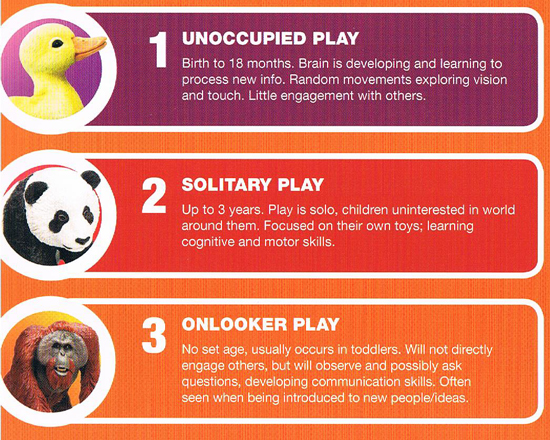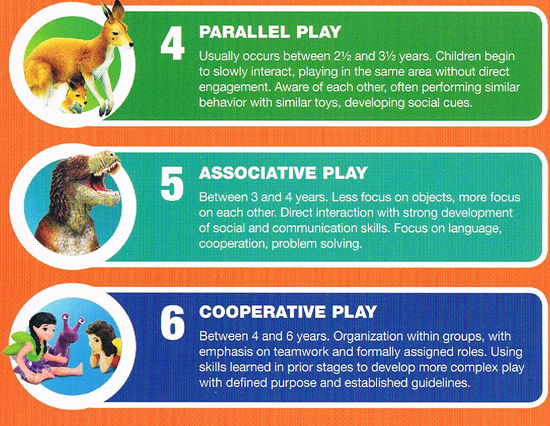Outlining the Six Stages of Play
As teachers, we know that creative, imaginative play is very important to help young minds develop. Our congratulations to Safari Ltd for helping to promote the six stages of play as identified by the American sociologist Mildred Parten who defined six stages of play during her extensive research examining how children develop their social skills.
Helping to Educate and Inform about the Importance of Play

Picture credit: Safari Ltd
Play is Very Important
Researchers such as Dr Parten noted that as children develop, their style of play alters. She identified six, distinct stages of play, the first four or which are focused around individual play. As children grow-up the way that they play changes. The latter stages (Associative and Co-operative), involve more complex play with much more interaction with other children.
The Second Set of Play Stages (Stage 4 to Stage 6)

Picture credit: Safari Ltd
The Stages of Play and their Importance in the Classroom
Teaching teams working with Early Years (EYFS), know the importance of play. It is not just a way for children to have fun but it is extremely important to help them develop and practice personal and social skills. When we visit schools, we observe many examples of creative play having been devised by the teachers and their teaching assistants. Structured play helps young minds to mature and helps children to interact with others and the wider world.
Our congratulations to Safari Ltd for publishing helpful literature on this important subject.
Visit the Everything Dinosaur website: Everything Dinosaur.

